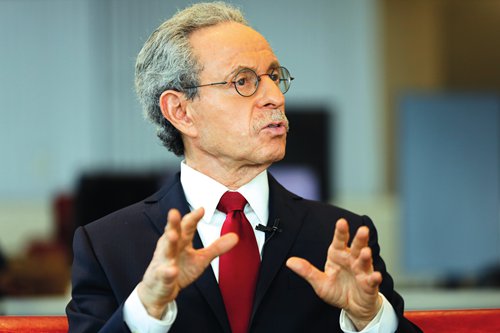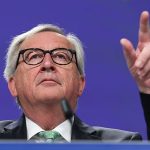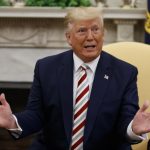Setting the role of a journalist aside, R.L. Kuhn explains a “real” China from his interpretation as an observer. Featured Image: Li Hao/GT
R.L. Kuhn has many labels: an anchor for CGTN’s television show Closer to China with R.L. Kuhn, a frequent commentator on China’s politics and economy, and most significantly, one of the recipients of the China Reform Friendship Medal, which was awarded to him at the celebration of the 40th anniversary of China’s reform and opening up in 2018.
Kuhn has never stopped trying to present a “real” China to the world. His recently broadcasted program China’s Poverty Alleviation at the Grassroots focuses on how China’s targeted poverty alleviation campaign really works. The Global Times conducted an exclusive interview with Kuhn to talk about some latest hot issues.
GT: Is there any change or difference in terms of Western reporting on China recently?
Kuhn: There has been a change, but it’s not been a good one. Beginning around 2015, President Xi was coming to meet with president Obama. At the time a lot of sensitive issues were building up and then it seemed to be solved, or at least partially solved. And then more recently, during President Trump’s presidency, the problems increased.
An important thing to recognize and try to understand is that the American political system is extremely divided now. There is not only distrust, but dislike of President Trump. More than half of the people feel that way about Trump. Probably 90 percent of the major media are very anti-Trump.
But one area that he’s not attacked on is China. So, there has been a surprising, perhaps a shocking consensus that something in terms of the US-China relationship was out of kilter. That it resonated with so many people, and so much in the media is reflecting on that.
So, this is a complex problem. But it is not the case that there’s just a few isolated people who are doing that in the media or in Washington [DC]. It’s very widespread. In such a situation, it is instructive to do two things.
One thing is that to show a bigger picture of what China is. We’re going to address problems too, but most importantly is this bigger picture of what is happening in China.
The other part of what needs to happen is some deep private reflection on why there’s been this change in recent years? Why that is the case?
And if you assume that the only reason is that everybody in America wants to suppress China, you will not find the right answer. You have to understand a deeper kind of analysis.
GT: What are the most common misunderstandings of China in the West?
Kuhn: What is wrong [about Western media] is that it gives the impression that it’s 90 percent or even 95 percent of the story, when in fact, it may be 10 percent of the story. All the other things that are going on in China are not reported. So, the issues that are reported are problematic and difficult issues. Although there are some people who make a profession out of attacking China, those people are not very many and they’re not very well respected.
In the media, they don’t tell the kinds of stories that I like to try to tell, because [our stories] don’t have the snap of scandal or some big problem.
But to me, those are the things that are an important part of the stories. So, just for example, we did a television series of Closer to China with R. L. Kuhn(2015) a couple of years ago. None of that was very scandalous. So, it’s not going to be picked up by the international media.
That’s an example of the big part of China that’s not reflected in Western media, because that’s not part of their way of thinking. But that’s what we try to do.
I think we’ve reached a lot of people who recognize that those big stories are a very legitimate part of the way to understand China. The large majority of people who critique China do it from one of several different perspectives. One [perspective is from] the people who really are supportive of China.They want to see China emerge, but see specific problems that they [are] concerned about.
GT: Could you use three simple words to describe the changes or the current situation in China?
Kuhn: I would say “courage” in terms of change. The courage needed for change that has been in the past and in the future.
“Experimentation” has been a critical strategy that China has used in the past in terms of experimenting with new things like free trade zones. China piloted a free trade zone in Shanghai for three years before they expanded at the 12 [trade zones]. That’s a good principle that China uses.
“Bold” or things are needed going forward that don’t necessarily always reflect the past.
A classic mistake of planners, corporate planners, strategic planners, is to extrapolate. To assume the future will be an extrapolation or a trend line from the past. That it won’t be. There will be sudden changes that one must prepare for. On a going forward basis,it’s “expecting uncertainties.”
GT: Why did you decide to start a new program focusing on an anti-poverty campaign?
Kuhn: China has been talking about the anti-poverty campaign a lot, but the awareness of foreigners, especially very sophisticated foreigners is almost zero. Actually, it is not something that I would have frankly picked myself to do, because it is physically difficult. We recognize that the leadership wanted to do that. We should do that. We’ve done several programs and I began to learn and to see its importance. So, we created a documentary concept to present to the world what China is doing for its anti-poverty campaign. We focus on five ways, including industry, education, relocation, eco-compensation and social security.
By Lin Luwen and Qu Qiuyan




